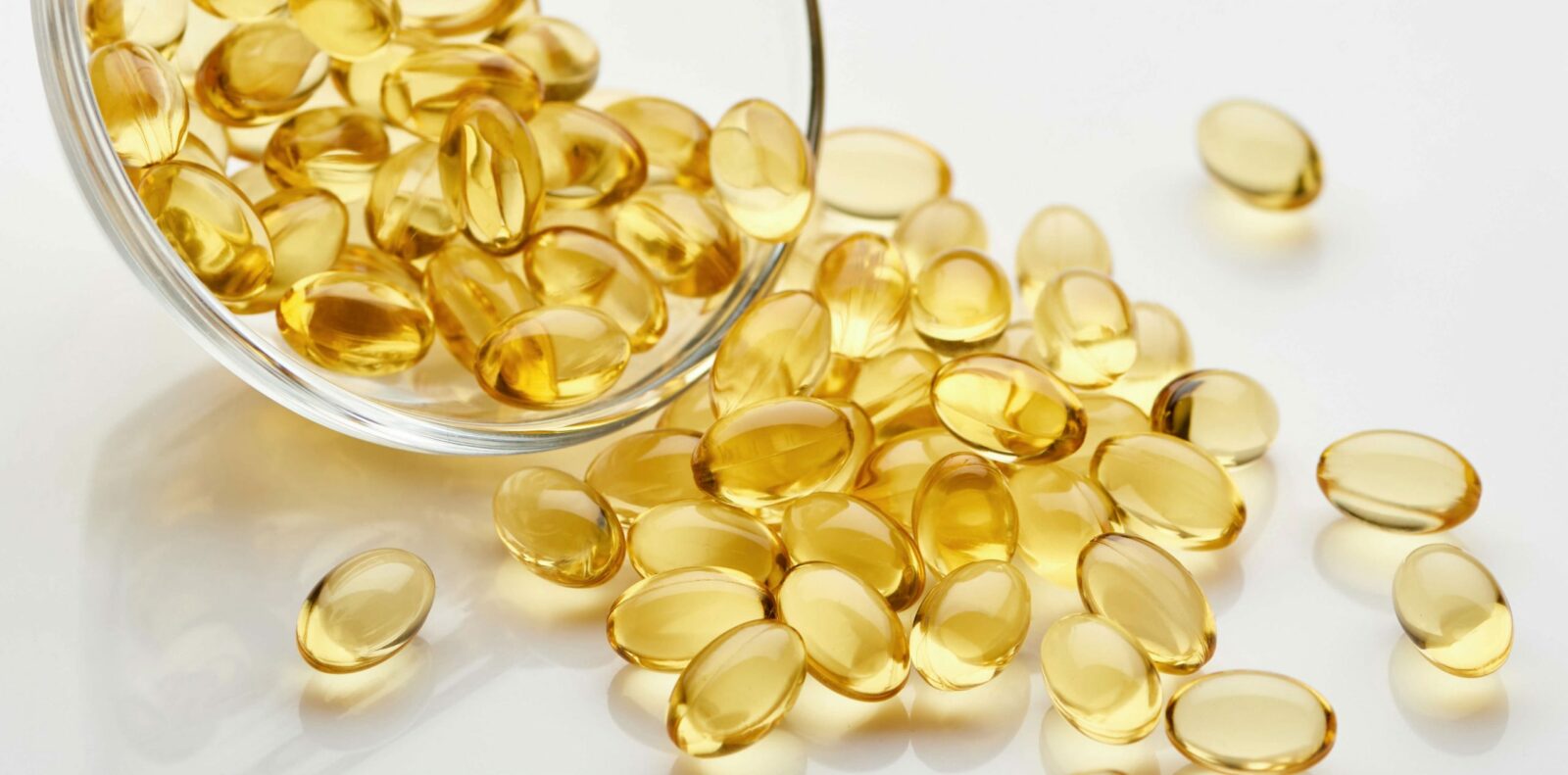Blog, Supplements
How to choose the best fish oil for your dog
Updated July 2023 by Kristina Johansen
Fish oils are rich in EPA and DHA (the good stuff). But with so many choices and brands to choose from, it’s important to remember that fish oils are not created equally, and there are several important things you should consider when buying fish oil for your dog.
1. Cod liver oil vs fish body oil
Fish body oil is pressed from the whole body of the fish. Cod liver oil is pressed from the liver of the fish. Both can be good sources of the omega-3 fatty acids DHA and EPA, but cod liver oil also contains high amounts of vitamin A and a good amount of vitamin D. One type of oil is not necessarily better than the other. Which one you choose should be based on your dog’s nutritional needs and your reason for adding it. In most cases, if additional omega-3 fatty acids are needed, add plain fish oil.
The addition of cod liver oil should be done with careful consideration to the NRC safe upper limits for vitamin A and D.
2. Dose and strength
Fish oil products vary widely in terms of the amounts of EPA and DHA they contain. A more concentrated product allows your dog to consume smaller amounts of oil to get the same amounts of DHA and EPA. For example, one supplement may say on the front that it contains 1,000 mg of fish oil per serving. However, on the back, you’ll read that EPA and DHA are only 170 mg. Another brand may contain the same amount of fish oil per serving, but EPA and DHA is 600 mg. Always check the product label and focus on the amounts of EPA and DHA in a supplement.
3. Freshness
Fish oils are highly prone to oxidation. If they do become rancid, they no longer work the way they should. Fish oils that have become rancid can be pro-inflammatory and contribute to the progression of disease. A high-quality, fresh fish oil will be free of fishy tastes or smells. Bottled fish oil is more vulnerable to going rancid because it is exposed to more oxygen. Look for fish oil capsules and buy from sellers with a fast stock turnover.
4. Purity
With fish oil supplements, there’s a greater chance of contamination with things like heavy metals and dioxins. Despite regulations being in place for fish oil supplements, not all of them meet their requirements, despite claiming to. The easiest way to verify the purity of your fish oil is to ask the manufacturer for your specific batch. COA is a piece of paper that will tell you the exact levels of contaminants. Any legitimate manufacturer should be able to provide a batch-specific COA.
5. Capsule size
If your dog has trouble swallowing larger capsules, look for a brand that offers smaller soft gels, such as Wiley’s Fish Oil Minis.
6. Brands
Preferably, look for brands intended for human consumption. Pet-specific fish oils need to be chosen with care. They are often less concentrated, and they are generally bottled instead of capsules.
7. Sustainability
Sustainable fishing is imperative, and it’s important to consider if the oils have been derived from fish harvested sustainably and that they haven’t been derived from any species of fish that are under threat.
I always include specific brand recommendations in my consultations; however, I generally prefer and routinely use products from Lamberts, Nordic Naturals and Wiley’s Finest.
Additional reading:
Is there something fishy about omega-3?
Should you avoid feeding your dog fish because of the contaminants they might carry?
I hope you found this blog interesting. If you have any questions or would like help selecting an appropriate consultation for your dog, please feel free to contact us at info@elmoskitchen.com

